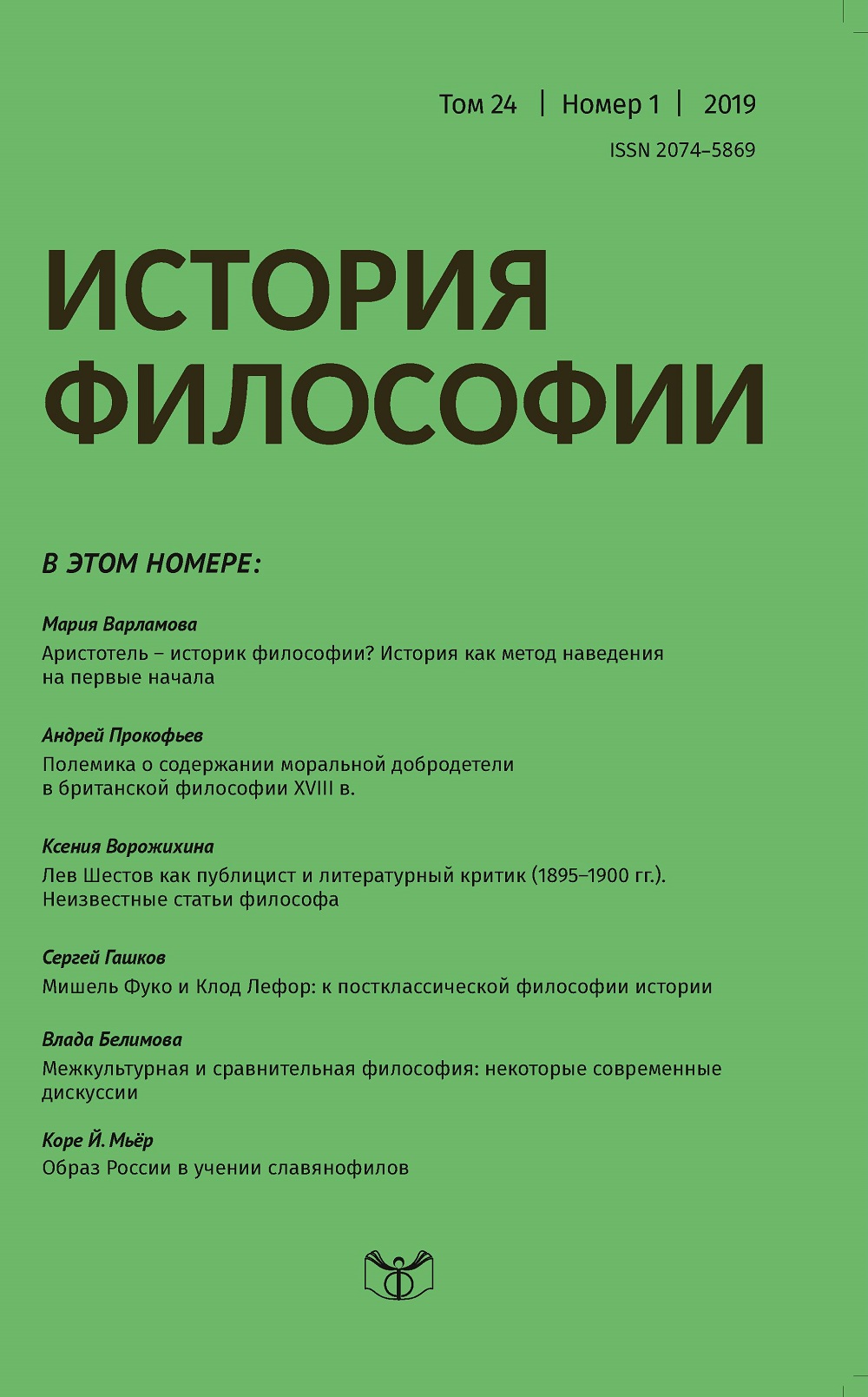The Slavophile Idea of Russia
Keywords:
Slavophile rhetoric, Russian identity, Russia and Europe, metaphor, I. Kireevsky, A. KhomyakovAbstract
This article analyses two classic texts of Russian Slavophilism: “On the Character of the Civilization
of Europe and its Relationship to the Civilization of Russia” by Ivan Kireevsky and “A Few Words
from An Orthodox Christian on the Western Confessions” by Aleksey Khomyakov. The Slavophile
project of these thinkers is seen as an attempt to construct a new national identity for Russia in the
context of an emergent secularization. This new Russian identity was typically formulated in relation
to an Other, which was Western Europe. Particular attention is drawn to the way in which the
Slavophiles created a specific idea of Russia rhetorically, by means of a set of metaphors, where
in particular the epithets “inner” and “outer” are noteworthy. The article argues that the Slavophiles
understood the relationship between Russia and the West as an analogue to a specific understanding of
the human being, which had emerged in Western thought from the late Antiquity onwards, above all
in St. Augustine’s Christian vision of an “inner man,” as opposed to the “outer” body. This idea was
later reformulated by Descartes, according to whom the fact that we think makes up the foundation for
confident knowledge about the physical world. The Slavophiles, in turn, transferred this dual image of
the human being onto Russia and Western Europe. They described the understanding of Christianity
in Russia as “inner,” claiming thereby that it has traditionally been more genuine and truer to its
origins, whereas the West did from early on develop an “outer” attitude to Christian dogmas –
a mechanical and, according to the Slavophiles, superficial understanding characterized by logical
reasoning and rationalization.

